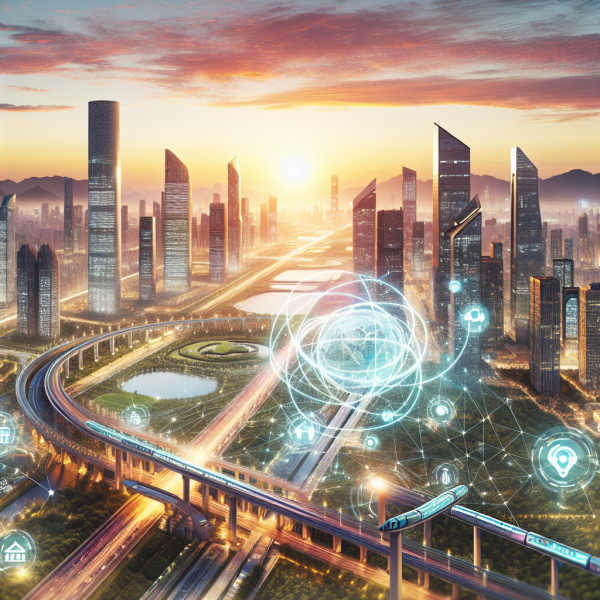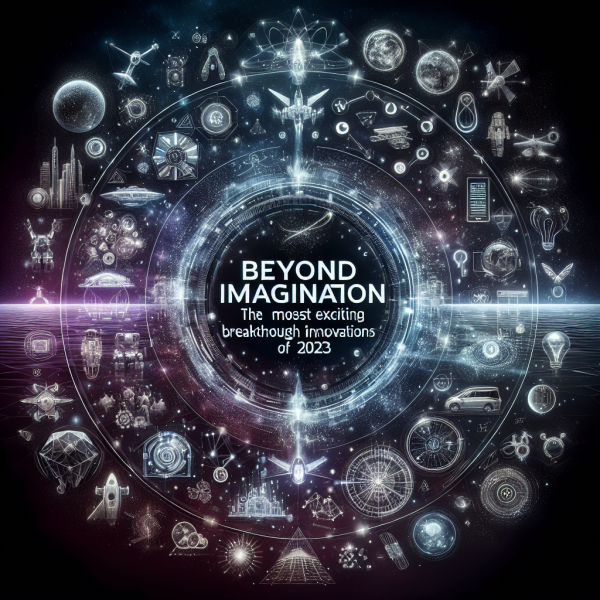Disruptive Technologies: What’s Shaping the Future of the Tech Market?

In an era characterized by rapid innovation and technological transformation, disruptive technologies have emerged as the driving forces that reshape industries, alter consumer behavior, and redefine how businesses operate. From artificial intelligence (AI) to blockchain and the Internet of Things (IoT), these technologies are not merely augmenting existing systems but are fundamentally changing the landscape of the tech market. As we navigate through 2023 and beyond, it is crucial to understand the trends and implications of these disruptive forces.
Defining Disruptive Technology
Disruptive technology refers to any innovation that significantly alters or displaces established technologies and practices. These technologies often provide greater convenience, efficiency, or cost savings, leading to a shift in marketplace dynamics. While they may initially serve niche markets, disruptive technologies can scale rapidly, reshaping entire industries over time.
Key Disruptive Technologies Shaping the Future
1. Artificial Intelligence (AI) and Machine Learning
AI has progressed from theoretical concepts to practical applications, becoming a cornerstone of technological disruption. With advancements in machine learning, natural language processing, and computer vision, AI is revolutionizing various sectors, including healthcare, finance, and automotive industries.
In healthcare, AI algorithms are improving diagnostic accuracy and personalizing treatment plans, while in finance, AI-driven analytics enable better fraud detection and risk management. As AI systems become more sophisticated, their applications are set to expand, leading to a future where machines assist, augment, or even make decisions traditionally reserved for humans.
2. Blockchain Technology
Blockchain has transcended its origins as the backbone of cryptocurrencies like Bitcoin. The unique attributes of blockchain—decentralization, transparency, and security—are being harnessed across numerous domains. Supply chain management, for instance, benefits from blockchain by enhancing traceability, reducing fraud, and improving efficiency.
Additionally, blockchain technology is gaining traction in areas like digital identity verification, smart contracts, and decentralized finance (DeFi). As organizations increasingly adopt blockchain solutions, we can expect a more secure and efficient digital infrastructure.
3. Internet of Things (IoT)
The IoT phenomenon has connected billions of devices, allowing them to collect and exchange data seamlessly. This connectivity is driving efficiencies in various sectors, from smart homes to industrial automation.
Companies are leveraging IoT technology for predictive maintenance, enhancing customer experiences, and optimizing resource management. The emergence of 5G technology will further amplify the potential of IoT, enabling faster data transfer and a wider range of applications, including augmented reality (AR) and virtual reality (VR) experiences.
4. Augmented Reality (AR) and Virtual Reality (VR)
AR and VR technologies are rapidly reshaping the landscape of entertainment, education, and training. These immersive experiences allow users to interact with digital environments in ways never possible before.
In education, AR can enhance learning by overlaying digital information in real-world contexts, while VR can simulate real-life scenarios for hands-on training. The gaming industry continues to adopt AR and VR technologies, offering more engaging and interactive experiences. As hardware and software development continues, these technologies are expected to become mainstream, opening new avenues for businesses.
5. Quantum Computing
Though still in its infancy, quantum computing promises to disrupt industries that rely on complex computations. Quantum computers can solve problems beyond the capabilities of classical computers, potentially transforming fields such as cryptography, pharmaceuticals, and financial modeling.
As major tech companies and governments invest heavily in quantum research, the possibilities of quantum computing may lead to breakthroughs that can reshape industries and create new markets.
6. Renewable Energy Technologies
With a growing emphasis on sustainability and climate change awareness, renewable energy technologies are becoming increasingly vital. Innovations in solar power, wind energy, and energy storage solutions are disrupting traditional energy markets.
The adoption of smart grids and energy management systems is enabling more efficient energy use and integration of renewable sources into the mainstream. Businesses that drive the transition towards greener technologies are likely to thrive, paving the way for a more sustainable future.
The Future Landscape
The tech market is on the brink of transformation as these disruptive technologies converge and complement one another. Companies that embrace these innovations can gain a competitive edge, improve operational efficiencies, and respond to evolving consumer demands.
However, the ascent of disruptive technologies also presents challenges, including regulatory hurdles, cybersecurity concerns, and ethical considerations. For organizations, adapting to these changes requires a mindset focused on agility, continuous learning, and innovation.
In conclusion, the next wave of technological disruption is upon us—an era that will redefine industries and create unprecedented opportunities. As we look toward the future, staying informed and adaptable will be paramount in navigating this ever-evolving landscape of technology.














